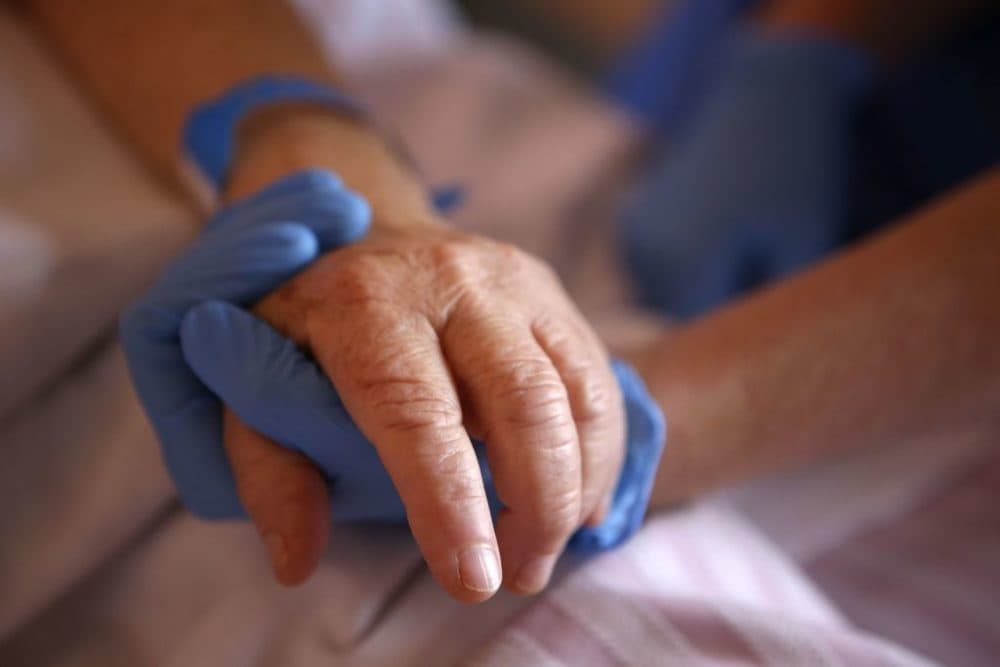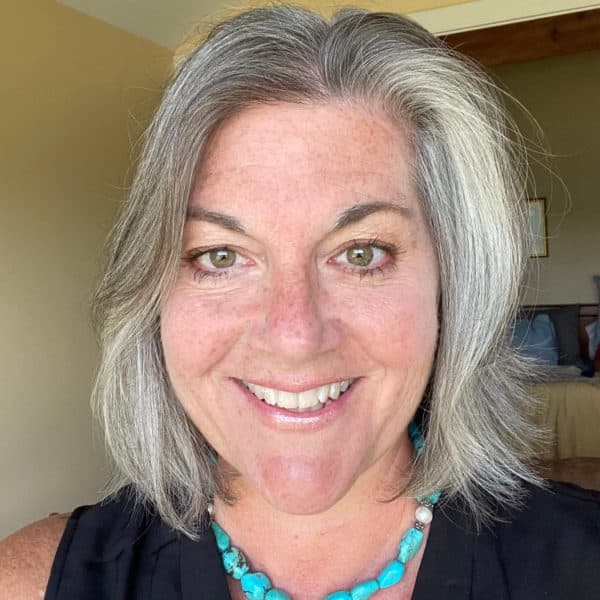Advertisement
Commentary
Being a family caregiver is enormously hard. Here are three reforms that would help

It seems there’s a “month” for nearly every cause lately, and that includes “National Family Caregivers Month,” which was recently proclaimed to be November. Between the inauguration of Michelle Wu, Boston’s first mayor who is also a mother of young children, and ongoing battles in Congress over President Biden’s social policy bill, the burdens and blessings on caregivers are getting more attention than ever.
Although I am best known as a “mom” caregiver, my intimate understanding of these burdens has been enhanced recently by my caregiving role for a critically ill parent and now, for my husband. While proclamations and funding for new programs are appreciated, real systemic change in our health care and caregiving systems are what caregivers like me really need.
The departure of mostly female caregivers — as a result of the education and care requirements for young children — has been widely documented. But the burden on caregivers for adult family members is an issue that seldom receives notice. And it’s been exacerbated by the pandemic. Restrictions on visiting policies in health care settings, dangers for immunocompromised patients, and archaic regulations create untenable choices for caregivers like me.
My husband Chuck received a kidney transplant in 2018, which put him in the highest risk category for COVID. In October 2020, having safely weathered what we thought was the worst of the pandemic (we were wrong, obviously), Chuck was scheduled for some routine bloodwork in advance of a long-planned partial knee replacement. But anomalies in his previously pristine lab work-ups spiraled over the following months. He was hospitalized nearly a dozen times. Ultimately, multiple attempts to prevent his body’s rejection of the donated kidney failed — and destroyed his immune system in the process.
Throughout this ordeal, I often thought about the many blessings our family possesses. I could work remotely, checking in with my team from hospital rooms. We can afford to have Chuck enrolled in the most expensive supplemental Medicare insurance program. We have once a week visits from an exceptional IV-certified nurse, and our home has enough space for a nurse to live on-site, to insure we have many layers of support. But even with these many advantages, I am well-schooled in the crushing impact on family caregivers. I have some ideas about how Massachusetts and our country can do better.
My husband Chuck received a kidney transplant in 2018, which put him in the highest risk category for COVID.
First, the coordination of care for complex patients is simply terrible in our system today. (I have a more spicy word for it that can’t be published.) While “disease management” companies and services have sought to solve this issue, their insights are limited to the same silos present in our current system.
Even with many supports, my days are often spent coordinating communication between our primary care physician, the dialysis team, the kidney and urology doctors and other specialists recommended to us. It is our visiting nurse who best understands the interplay among the myriad side-effects and realities of Chuck’s health. Yet, she is similarly required to work within these silos. Granting visiting nurses the ability to order tests, share information among providers, as well as giving them the time to coordinate care (e.g. paying nurses and their agencies for it) would be a small change to (mostly) Medicare reimbursement and lab policies that I am confident would save money and relieve the burden on caregivers.
Second, the rules around when and where caregivers are permitted to visit their family members need to be updated. Through multiple in-patient visits at three different hospitals in two states in the last 12 months, as well as countless medical appointments and outpatient procedures, I have experienced the full-range of pandemic restrictions in health care settings for visitors. During the total ban on visitors during peak-COVID last winter, Chuck's condition plus his hearing loss caused such confusion that he misinterpreted the procedure he consented to and thought he was going in for major surgery without being able to tell me or tell me he loved me. This caused significant and unnecessary stress.
Chuck fits all the requirements for hospice care. But as a patient receiving dialysis, he is not eligible for these services ...
More recently, visitors are restricted by time or where they can be (e.g. not in pre-op) which would be fine, if the doctors were available while and where caregivers are present, but that is seldom the case.
For someone who is critically ill, remembering and reciting every detail of treatment and history from the past year is just not a reasonable expectation. I have worked hard to keep all the specifics straight, to document conversations, and provide the most critical information, but often I have had to go to extraordinary efforts to get access to the very medical professionals who want these details.
Recently, New York passed a bill to allow for family caregiver visits to nursing home patients which emanated from concerns of caregivers like me. However, in practice far too many families are still limited in their visitation. While Congress has introduced a bill to expand family caregiver access to nursing homes this issue is equally important in hospital settings. Congress should expand medical caregiver rights to hospital and all health care settings. In the interim, Massachusetts as a center for health care innovation, should leapfrog New York and lead the way in passing legislation that defines a new model.
Third, the availability of hospice care for patients who are receiving life-extending treatments, but with a terminal diagnosis, has a glaring exception that has impacted my family and I imagine thousands of others. Chuck fits all the requirements for hospice care. But as a patient receiving dialysis, he is not eligible for these services even though cancer patients receiving chemotherapy are eligible for the same services today.
Throughout this ordeal, I often thought about the many blessings our family possesses.
Our family has access to a fantastic and brave primary care provider who has helped us to cancel and decline procedures that would rob Chuck of quality time doing what he loves — being on our farm or with our daughters — that make zero sense given his prognosis. Yet, to protect themselves (I assume) specialists are often recommending the “suggested” diagnostic procedures for Chuck’s multiple health challenges. The emotional burden is on me to ask “Is it really necessary?” Especially when the life expectancy for a dialysis patient in Chuck’s situation is less than the likely mortality for a patient diagnosed with colon cancer.
Chuck isn’t eligible for a second kidney transplant. Having a hospice nurse who could help families of dialysis patients wade through the clinical data and emotional reality of these very real decisions would likely pay for the increased cost of allowing us access to hospice care, as this study reveals.
As "Governor Swift," I can’t count the number of “awareness month” bills and proclamations I signed. I appreciate the sentiment behind National Family Caregiver Month this November, but concrete improvements in the system are required — and will trump gestures every time.
